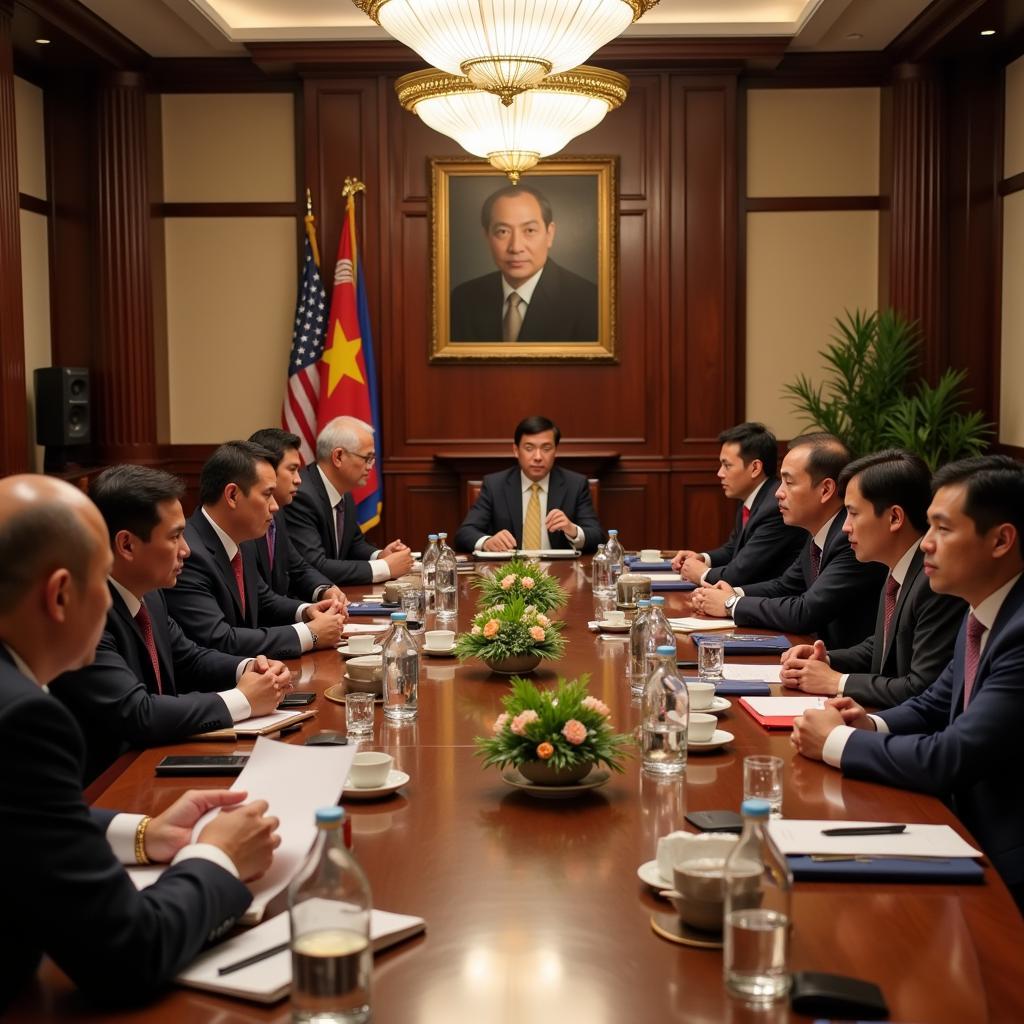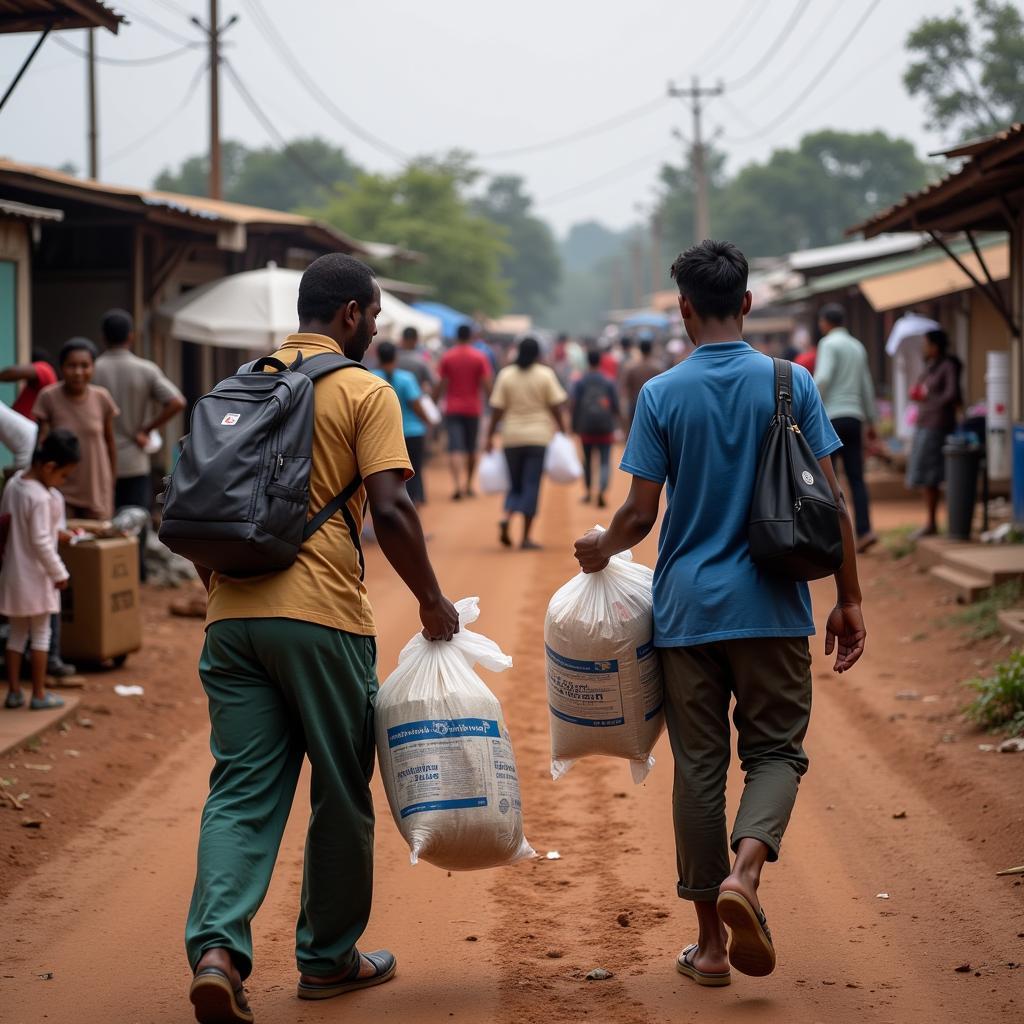The ASEAN 5-Point Consensus, agreed upon in April 2021, represents a unified regional response to the ongoing political and humanitarian crisis in Myanmar. The consensus outlines a framework for dialogue, de-escalation, and a return to stability following the military coup that plunged the nation into turmoil. This article delves into the details of the consensus, its implementation challenges, and its implications for Myanmar and the wider ASEAN region.
The consensus comprises five key points:
- Immediate cessation of violence in Myanmar. This crucial first step calls for all parties to exercise utmost restraint and prioritize the safety and well-being of civilians.
- Constructive dialogue among all parties concerned. The consensus emphasizes the need for peaceful and inclusive dialogue to address the underlying political differences and find a resolution acceptable to all stakeholders.
- Mediation by a Special Envoy of the ASEAN Chair. This provision highlights the regional bloc’s commitment to facilitating dialogue and reconciliation in Myanmar. The Special Envoy serves as a bridge between the conflicting parties.
- Provision of humanitarian assistance coordinated by ASEAN. Recognizing the dire situation faced by millions in Myanmar, the consensus stresses the importance of providing timely and impartial aid, particularly to the most vulnerable communities.
- Visit by the Special Envoy to Myanmar to meet with all parties concerned. This crucial aspect of the consensus aims to establish direct contact with key stakeholders, assess the situation on the ground, and identify pathways for implementing the other four points.
 ASEAN Meeting on Myanmar Crisis
ASEAN Meeting on Myanmar Crisis
Challenges in Implementing the 5-Point Consensus
Despite its noble intentions, the implementation of the ASEAN 5-Point Consensus has faced significant obstacles. The lack of tangible progress on the ground, particularly regarding the cessation of violence and the facilitation of dialogue, has raised concerns about the effectiveness of the regional bloc’s approach.
One of the primary challenges stems from the military junta’s reluctance to fully cooperate with ASEAN’s efforts. The junta has been accused of obstructing the Special Envoy’s access to key stakeholders and failing to adhere to the agreed-upon ceasefire. This lack of cooperation undermines the foundation of the consensus and hinders progress toward a peaceful resolution.
Furthermore, the ongoing violence and human rights violations continue to exacerbate the humanitarian crisis, displacing countless civilians and creating an atmosphere of fear and distrust. The situation is further complicated by the presence of various armed groups with their own agendas, making it even more difficult to establish a unified approach to peace.
 Humanitarian Aid Distribution in Myanmar
Humanitarian Aid Distribution in Myanmar
Implications for Myanmar and ASEAN
The crisis in Myanmar poses a significant challenge to ASEAN’s credibility and its principle of non-interference in the domestic affairs of member states. While the 5-Point Consensus reflects the bloc’s commitment to finding a peaceful solution, the lack of concrete progress has drawn criticism from some quarters.
For Myanmar, the ongoing turmoil has devastating consequences. The political instability, coupled with the humanitarian crisis, is hindering the country’s development and exacerbating existing inequalities. The situation also threatens to spill over into neighboring countries, potentially destabilizing the region.
Looking Ahead: The Future of the 5-Point Consensus
Despite the challenges, the ASEAN 5-Point Consensus remains the most viable framework for addressing the crisis in Myanmar. The international community continues to urge all parties to fully implement the consensus and prioritize dialogue and reconciliation.
Moving forward, ASEAN must adopt a more assertive approach, leveraging its collective influence to pressure the military junta to comply with the agreed-upon terms. This could include imposing targeted sanctions, increasing diplomatic pressure, and exploring alternative avenues for dialogue.
The crisis in Myanmar demands a sustained and coordinated effort from ASEAN and the wider international community. The 5-Point Consensus, if implemented effectively, offers a roadmap toward peace and stability. However, achieving this will require unwavering commitment, strategic engagement, and a willingness to explore all available options to break the cycle of violence and bring lasting peace to Myanmar.


